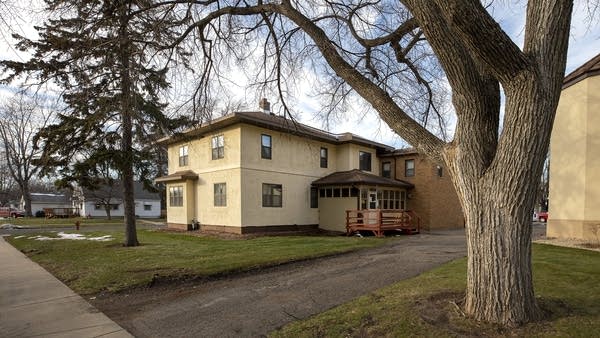A medical haven for Latino immigrants in rural Minnesota

Go Deeper.
Create an account or log in to save stories.
Like this?
Thanks for liking this story! We have added it to a list of your favorite stories.
Ma Elena Gutierrez began getting calls last year from fellow community members who shared with her their health concerns. She would drive them to the doctor or urge them to go to the emergency room.
But she soon realized that she couldn't do it all on her own. And after hearing about one man who put off seeing a doctor and later died of cancer, Gutierrez knew there had to be a better way to connect Latino immigrants in central Minnesota with quality health care.

Gutierrez partnered with health care providers and a Catholic church in Waite Park to open a free monthly clinic called Centro Hispano. Although the clinic wasn’t spurred by the coronavirus pandemic, concerns about the virus’ disproportionate toll on the Latino community has underscored the importance of patients seeing a trusted doctor, said Gutierrez.
Latinos in the United States are more likely to work essential jobs during the pandemic and be exposed to the coronavirus. They are also three times more likely to die from COVID-19 than white Americans, according to national data analyzed by the APM Research Lab. Many Latino immigrants in this part of the state work in essential jobs, staffing meatpacking plants, farms, cleaning companies and grocery stores. They can't always stay home to reduce their risk of exposure.
Turn Up Your Support
MPR News helps you turn down the noise and build shared understanding. Turn up your support for this public resource and keep trusted journalism accessible to all.
But many don't have health insurance and are afraid to seek care. Some see the health care system as another suspicious government entity.
The Centro Hispano clinic is housed in a home owned by St. Joseph Catholic church. Patients check in at the kitchen area, get screened for the coronavirus and fill out paperwork. Then they see a doctor in one of the bedrooms.

Many of the clients are undocumented immigrants, lack medical insurance and have anxiety about medical bills. They come here from all over the region for reasons ranging from injuries on the job and sinus infections to heart disease and diabetes.
Greg McNamara, the clinic’s volunteer doctor, likens himself to a triage physician. He visits with patients once a month and takes their calls in between visits.
On most days, McNamara works as a family physician in Little Falls. But the climate around illegal immigration has put many of his patients at risk of deportation, he said.
"Our sheriff's department and police department have gotten these patients so afraid of getting arrested and deported that they won't even attempt to see a physician in Little Falls," McNamara said. "They would rather drive all the way down to St. Cloud to see me at St. Joseph's parish because they feel safer."

Job losses during the COVID-19 crisis have exacerbated people's worries over medical bills. It's especially hard on people who don't have authorization to work in this country — because they don't qualify for many benefits, said Gutierrez, an organizer with a group called Fe y Justicia, or Faith and Justice.
“They don’t get unemployment, the check from the government,” she said.
She said even paying for the groceries can be a stretch. Gutierrez’ organization has been raising money and giving out checks at the clinic to help people pay for food and rent.
The CentraCare hospital system is funding Centro Hispano as part of a three-year, $1.8 million grant.
Pam Beckering, the trauma-informed care manager at CentraCare, said the clinic is unique because of its relationships with community organizers who set up the appointments and bring patients in. They know what the struggles are, whether it's food insecurity, unstable housing, or something else upstream.
"We’ve been in our brick buildings so long that we forget that we don't know what’s best for the community,” she said.
Organizers like Guiterrez are helping providers explore “some of those outside factors, social determinants that create health issues later on down the line and trying to be proactive instead of just treating the symptom,” she said.


